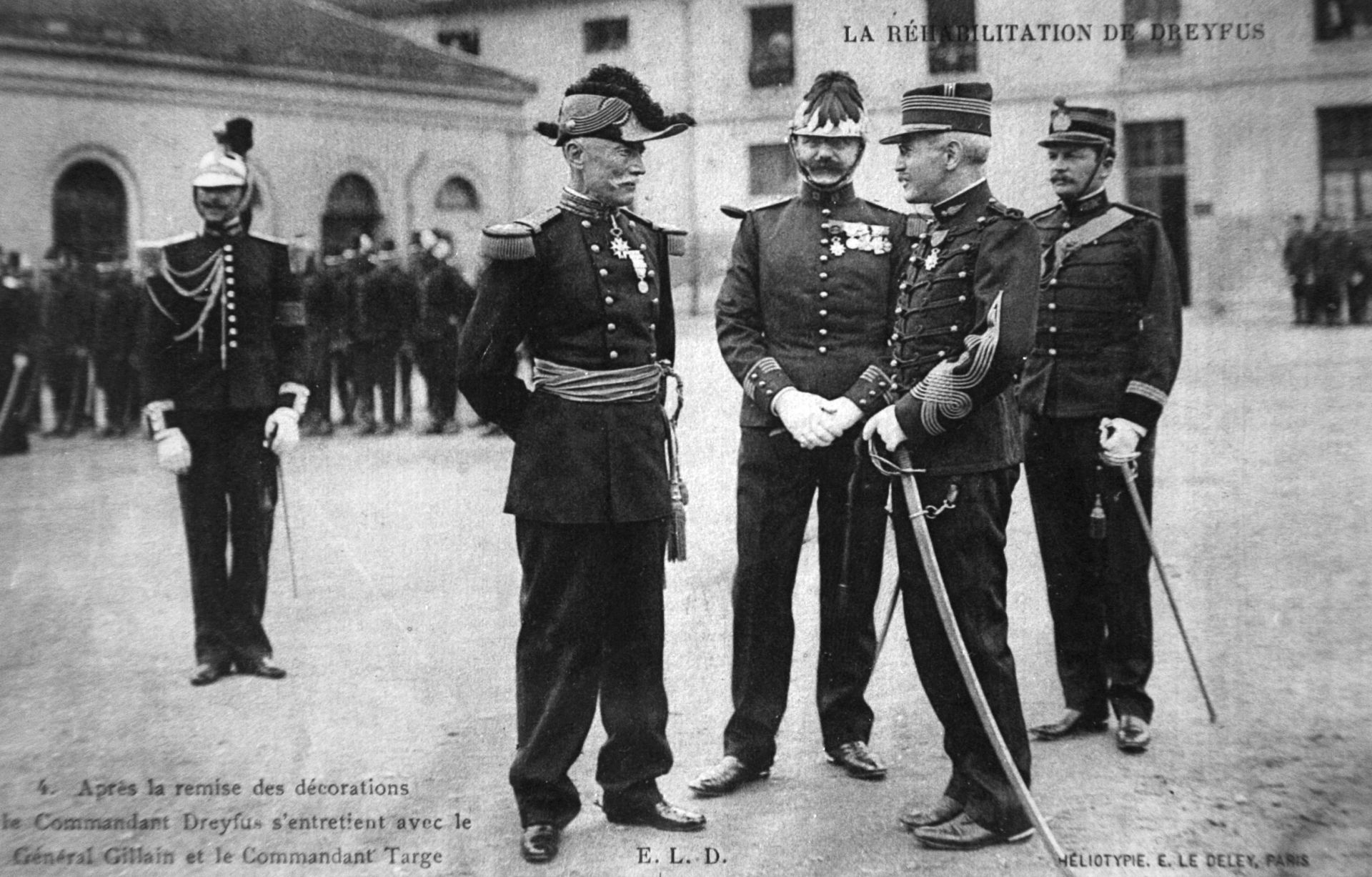- Home
- Middle East
- Macron Declares July 12 Annual Dreyfus Commemoration Day

Le capitaine Alfred Dreyfus (2D) s'entretient avec le général Gillain (G) qui vient de lui remettre la Légion d'honneur lors d'une cérémonie célébrant la réhabilitation de Dreyfus, dans la grande cour de l'École militaire de Paris, le 21 juillet 1906. ©AFP
French President Emmanuel Macron on Saturday declared July 12 a French day of national commemoration for Alfred Dreyfus, a French army captain wrongly convicted of treason in 1894 in a notorious act of antisemitism.
"From now on, there will be a commemoration ceremony every July 12 for Dreyfus, for the victory of justice and the truth against hatred and antisemitism," Macron said in a statement published by his office.
The first full remembrance will be in 2026, the 120th anniversary of France's highest appeals court recognizing Dreyfus's innocence, Macron said.
France needed to remain vigilant in the face of the "ancient specter" of antisemitism, he said.
The honoring of Dreyfus, whose condemnation came amid rampant antisemitism in the French army and wider society in the late 19th century, comes at a time of growing alarm over hate crimes targeting Jews in the country.
Dreyfus, a 36-year-old army captain from the Alsace region of eastern France, was accused in October 1894 of passing secret information on new artillery equipment to a German military attache.
The accusation was based on a comparison of handwriting on a document found in the German's wastepaper basket in Paris.
Dreyfus was put on trial amid a virulent antisemitic press campaign. But novelist Emile Zola then penned his famous "J'accuse" ("I accuse...") pamphlet in support of the captain.
Despite a lack of evidence, Dreyfus was convicted of treason, sentenced to life imprisonment in the infamous Devil's Island penal colony in French Guiana and publicly stripped of his rank.
But Lieutenant Colonel Georges Picquart, head of the intelligence services, had his doubts and reinvestigated the case in secret, discovering that the handwriting on the incriminating message was that of another officer, Ferdinand Walsin Esterhazy.
When Picquart presented the evidence to the general staff of the French army, he himself was driven out of the military and jailed for a year, while Esterhazy was acquitted.
In June 1899, Dreyfus was brought back to France for a second trial. He was initially found guilty and sentenced to 10 years in prison, before being officially pardoned -- though not cleared of the charges.
Only on July 12, 1906, after many twists, did the high court of appeal overturn the original verdict, exonerating Dreyfus.
He was reinstated with the rank of major, served during World War I and died in 1935, aged 76.
Anne-Cecile Levy, a great granddaughter, told AFP that creating a commemoration day would help young people to remember the chapter in French history.
"I'm very happy that we're finally rehabilitating the memory of this great man who was a hero and not a victim, or at least a heroic victim," Levy said.
Michel Dreyfus, a great grandson, said that Dreyfus was "a hero by fighting to regain his honor and even just by surviving the terrible ordeal he endured."
"It is also the rule of law that we are celebrating, and that is important at this time because it is being challenged in several countries," he said.
Last month, parliament approved a bill promoting Dreyfus to the rank of brigadier general.
Between January and May this year, 504 antisemitic acts were reported in France, according to interior ministry figures.
France is home to the world's largest Jewish population outside Israel and the United States.
By Valérie LEROUX / AFP
Read more



Comments